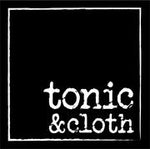Sustainability Journey
The fashion industry is one of the most wasteful industries in the world, dramatically contributing to global pollution. However, we believe by caring for the environment we can dramatically reduce our impact on the planet - while empowering people. We're careful about the fabrics we choose, and how (and how many) garments we manufacture.
Fabrics

Organics
We use Organic Cottons (including denim), Organic Hemp and Organic Linen.
Organic cotton farming doesn’t use toxic pesticides or artificial fertilisers and keeps the soil, air and waterways healthy. Farmers and their families are also kept safe by not being exposed to chemicals in the field or through their food and water supply.
Our organic cotton fabrics are certified by the GOTS (Global Organic Textile Standard) Certification. GOTS is the leading textile processing standard for organic fibres, including ecological and social criteria, backed up by independent certification of the entire textile supply chain.
Our India based fabric suppliers are KG Denim, Mehera Shaw, and Herbal Fab.
We purchase our Organic Hemp from Wall Fabrics, NZ.

Deadstock Fabrics
Deadstock fabrics are rescued, end of roll fabrics that would otherwise have been shredded and gone to landfill. We source these from local sustainability-conscious fabric suppliers in New Zealand, including Wall Fabrics, Auckland.

Ethical Merino
Our NZ supplier is - The Merino Collective, Auckland
All Merino Collective fabric is knitted in Australia at ABMT Melbourne. You can learn more about this here.
The Merino Collective ethical merino is guaranteed to be of NZ and Australian origin and meets the Responsible Wool Standard.

Natural Fibres
As well as using organic fabrics we love using any and all natural fibres. While these fibres have been grown using non organic methods, they are still much gentler on the environment compared to synthetic fabrics such as polyester (not to mention being much nicer to wear). While a cotton t-shirt can start to biodegrade in just a few weeks, a polyester t-shirt can take anywhere from 20-200 years to biodegrade.
How We make
We are a small producer of women's clothing. We do not use factories to make our clothes, and each run is small - often just 20 pieces per style and colour (across a size range). Because we make to meet demand - and no more - we do not have overflow - and therefore nothing is 'destroyed' or sent to landfill at the end of each season.
We also believe in transeasonal design and avoid design fads - and thus our collections are evergreen - my favourite Tonic & Cloth pieces are those I can wear from summer to winter with simple layering.
People

We make with Holi Boli's empowering sewing house in rural India. That means your India-made garment was sewn by a skillful local woman in the village of Bhalupali, Sambalpur, India. These women aren’t nameless labourers, they are like our sisters. Each have precious hopes for the future and fierce determination to provide for their families. They are empowered through a fair wage, safe working conditions and meaningful employment. They are gaining the respect of their families and community. They are living lives of freedom and dignity.

In New Zealand we make with Umsiko, an awesome team of women led by girl boss and local textile industry champion Iona Woolgrove. Iona is an encourager and connector of people and ideas - and many small NZ design businesses are thriving because of her skills and transparency. We love her skilled team, and we love that through sewing from their own homes they can navigate their myriad roles as makers, mothers and more.
